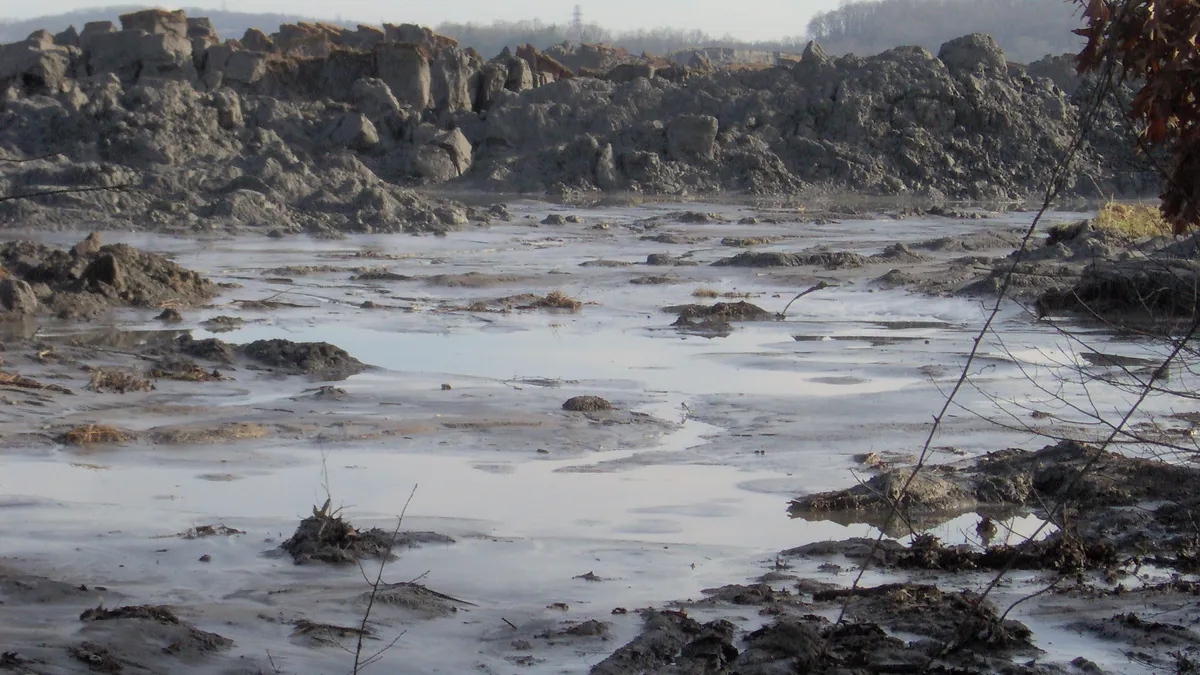Dive Brief:
- A federal judge in Virginia is deliberating in a case focused on Dominion Virginia Power's plan to close coal ash basins in the state, which is first of its kind, and experts believe an appeal is likely and a trip to the U.S. Supreme Court may be in the cards, the Associated Press reports.
- The Sierra Club has sued Dominion for discharges of arsenic and other toxic substances into groundwater from 3 million tons of coal ash it has stored along the Elizabeth River in Chesapeake. At issue in the case is the scope of the Clean Water Act and how it applies to contaminated groundwater; the rule as it stands doesn't directly address groundwater protection.
- The Virginia Department of Environmental Quality has supported a "cap in place" plan for dealing with the waste, but environmental advocates want the ash moved in order to prevent it leeching into waterways.
Dive Insight:
The case could have broad implications for similar coal ash cleanups around the country and the status of groundwater protection under the Clean Water Act. Currently, the national spotlight has been on the Southeast, particularly focusing on North Carolina's ongoing issues with coal ash disposal after the 2014 leakage of coal ash waste by one of Duke Energy's coal ash storage facilities into the Dan River.
Following almost a week's worth of complicated testimony, the AP reports there is no indication when Judge James A. Gibney Jr. will rule on the Dominion coal ash case. But whatever the outcome, experts interviewed by the news outlet expect an appeal and a possible trip to the U.S. Supreme Court to determine issues focused on the Clean Water Act.
“It’s always been a real gray area the extent you need a Clean Water Act permit for situations where there’s leeching of toxics materials into groundwater,” Robert Percival, director of the environmental law program at the University of Maryland, told the AP.
While the utility claims its coal waste can be safely stored in place, with liners that would avoid rainwater leeching and contamination of nearby waterways, environmental advocates want the ash moved to a lined landfill.
In a brief filed last month, Dominion said that it had 73 samples of surface water taken near the site over the past 13 years which maintained arsenic concentrations below state and federal standards.
Scientists at Duke University last month released the results of a study finding leakages from coal ash ponds were contaminating groundwater at fifteen sites in five Southeastern states, including Virginia.
The Southern Environmental Law Center, which funded that study, is representing the Sierra Club in the case against Dominion Virginia Power. The groups say the utility discharged toxic substances from millions of tons of coal ash into groundwater, thus violating the Clean Water Act.















